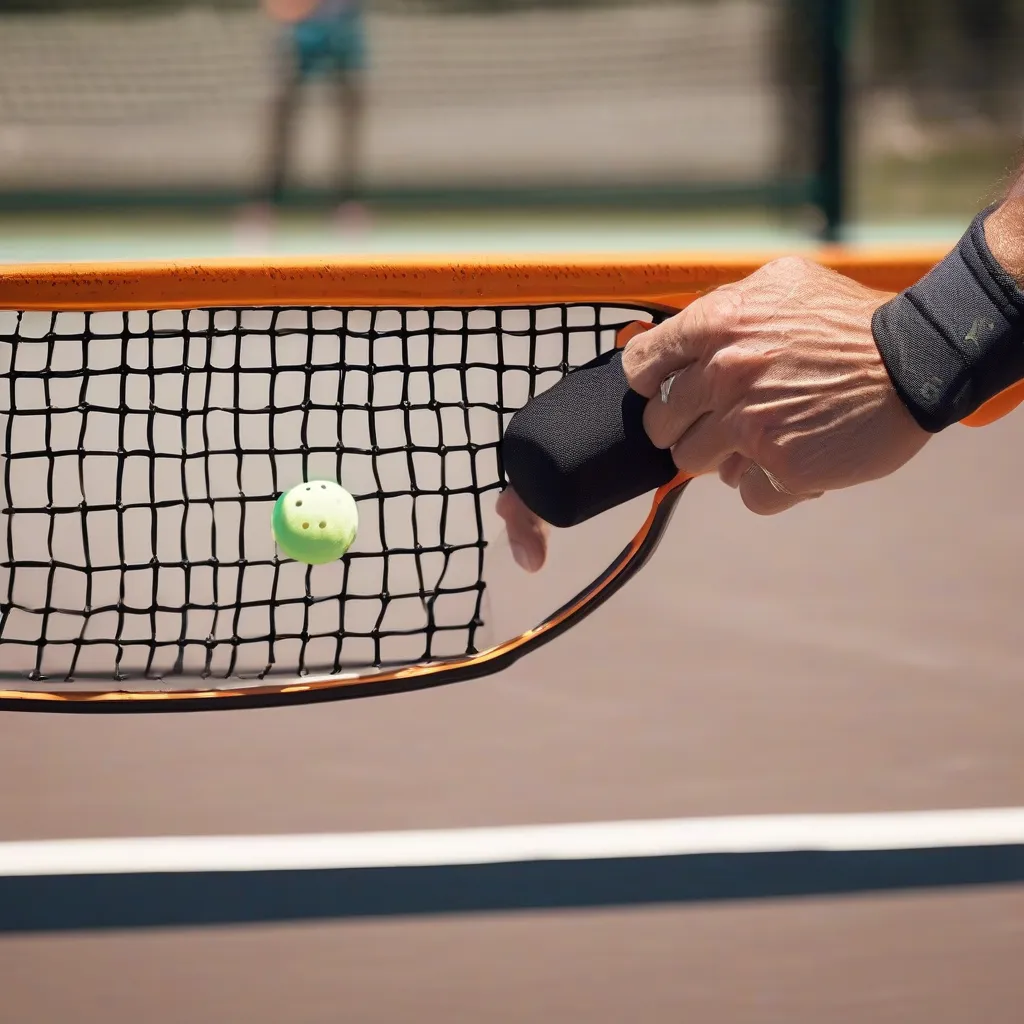Table of Contents
Introduction to Pickleball Paddle Control Techniques
Controlling your paddle effectively is crucial for improving your pickleball game. Good paddle control allows you to place your shots with precision, manage the pace of the game, and outmaneuver your opponent. This guide covers the top 10 pickleball paddle control techniques to help you enhance your skills and dominate the court.
Why Paddle Control is Important
Effective paddle control offers several benefits:
- Improved Accuracy: Better control helps you place shots more accurately.
- Enhanced Consistency: Consistent paddle control leads to more reliable performance.
- Strategic Advantage: Controlling the paddle allows you to execute complex strategies.
- Reduced Errors: Good control minimizes unforced errors.
Top 10 Pickleball Paddle Control Techniques
1. Use a Proper Grip
The way you grip your paddle can greatly affect your control. Use a continental grip for a balanced feel, or adjust to a grip that feels comfortable and allows for precise control. For more on grips, visit Pickleball Central. This grip technique is foundational among pickleball paddle control techniques.
 Pickleball Paddle Grip Techniques
Pickleball Paddle Grip Techniques
2. Focus on Footwork
Good footwork positions you correctly for each shot, enhancing your control. Practice moving quickly and maintaining balance. For footwork drills, check out Pickleball Portal. Proper footwork is a key pickleball paddle control technique for better shot execution.
3. Keep Your Paddle Up
Always keep your paddle up and ready in front of you. This position allows for quicker reactions and better control over your shots. Keeping your paddle up is an essential pickleball paddle control technique for readiness.
4. Develop Soft Hands
Use a gentle touch to guide the ball rather than forcing it. Soft hands help you control the pace and direction of the ball more effectively. Developing soft hands is a critical pickleball paddle control technique for finesse.
5. Practice Dinks
Dinking involves gently hitting the ball into the non-volley zone. It requires precise control and can help you improve your touch. For more on dinking, visit USA Pickleball. Practicing dinks is a valuable pickleball paddle control technique for close-range play.
6. Master the Drop Shot
The drop shot is a great way to change the pace of the game and force your opponent to move. Aim to land the ball just over the net into the non-volley zone. Mastering the drop shot is an advanced pickleball paddle control technique for strategic play.
7. Use Topspin and Backspin
Applying topspin and backspin can help you control the ball’s trajectory and bounce. Practice spinning the ball to add variety to your shots. Using spin is a sophisticated pickleball paddle control technique for advanced players.
8. Focus on Consistency
9. Work on Your Volley
Volleys require quick reflexes and precise control. Practice keeping your volleys low and directed towards your target. Improving your volley is a fundamental pickleball paddle control technique for net play.
10. Train Your Mental Game
Mental focus and confidence play a big role in paddle control. Stay calm under pressure and trust your skills. Training your mental game is an essential pickleball paddle control technique for maintaining composure.
Common Paddle Control Mistakes and How to Avoid Them
Avoiding common paddle control mistakes can greatly improve your game. Here are some mistakes to watch out for:
1. Gripping Too Tightly
Holding the paddle too tightly can reduce your control. Keep a firm but relaxed grip to allow for fluid movements.
2. Poor Footwork
Bad footwork can lead to off-balance shots. Always position yourself correctly for each shot.
3. Inconsistent Contact
Ensure you make consistent contact with the ball in the center of the paddle for better control.
4. Lack of Focus
Not paying attention can lead to mistakes. Stay focused on the game and anticipate your opponent’s moves.
Resources for Further Learning
For more detailed information on improving your pickleball paddle control, explore these valuable resources:
- Visit the USA Pickleball Association (USAPA) for comprehensive guides and tips.
- Explore instructional videos and articles on Pickleball Central.
- Check out detailed reviews and tutorials on Pickleball Portal.
- Learn from top players and coaches on PickleballMAX.
Conclusion
Mastering pickleball paddle control techniques is essential for enhancing your precision and overall performance on the court. By implementing these top 10 techniques, you can improve your accuracy, consistency, and strategic play. Use this guide to refine your paddle control skills and take your game to the next level. With practice and dedication, you’ll see significant improvements in your ability to control the ball and dominate your matches.
Frequently Asked Questions
- Why is paddle control important in pickleball? Effective paddle control allows for more accurate shot placement, consistent performance, and strategic play.
- How can I improve my paddle control in pickleball? Practice the tips provided in this guide, such as using a proper grip, focusing on footwork, and developing soft hands.
- What are common paddle control mistakes in pickleball? Common mistakes include gripping the paddle too tightly, poor footwork, inconsistent contact with the ball, and lack of focus.
- Where can I find more information on pickleball paddle control? Visit the USA Pickleball Association, Pickleball Central, Pickleball Portal, and PickleballMAX websites for comprehensive guides and tips.
- How does mental focus affect paddle control? Mental focus helps maintain composure under pressure and trust in your skills, which enhances paddle control.